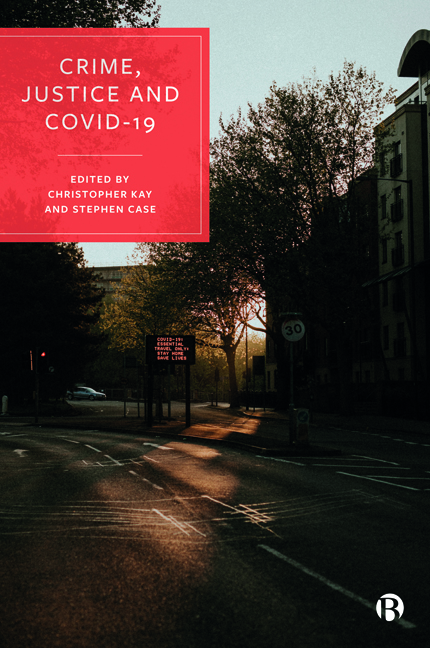13 - Conclusion: The Lessons – Recovery and Pandemic Preparedness
Published online by Cambridge University Press: 20 January 2024
Summary
Understanding and responding to pandemics in criminal justice: the need for a holistic approach
In the introduction to this collection, we introduced the notion that it is important to understand the impact of COVID-19 on the criminal justice system in England and Wales holistically. We argued that to understand the ways in which the pandemic changed the facilitation and experience of crime and justice, we needed to see not just the ways it effected the functioning of individual agencies but also the interconnections between these agencies, and that this is where real learning around recovery and future pandemic preparedness can be obtained. We believe that the contents of this collection make a strong argument for this approach.
Throughout the chapters, reference has been made to the interrelated impacts of criminal justice agencies on the operation and experience of crime and justice during the pandemic. Multiple chapters referenced the closure and increased backlog of cases going through the criminal courts as causing considerable concerns further down the line. Chapter 4 showed that the closure of courts during the first lockdowns not only created a backlog of cases, but also made it difficult for some of the key objectives of probation work to be undertaken. While this was a concern on a practical level, particularly in relation to the long-term impact of probation supervision, the chapter also argued that it could potentially pose a threat to the legitimacy of the service. Should a client breach their community order, the closure of courts meant that returning a case to court would simply not be possible, reducing practitioners’ abilities to enforce sentences. Legitimacy was also raised in Chapter 3 in relation to portal justice.
Chapter 5 again raised concerns about the impact of court closures and case backlogs on the prison system. The chapter recognized that the increasing backlog of cases meant fewer people were being given prison sentences and that this, combined with the natural outflow of residents at the end of their sentences, allowed for a reduction in the prison population. This raises a number of concerns. First, the situation with the court system meant that individuals on remand were spending much longer in custody than was previously the case.
- Type
- Chapter
- Information
- Crime, Justice and COVID-19 , pp. 254 - 263Publisher: Bristol University PressPrint publication year: 2023



